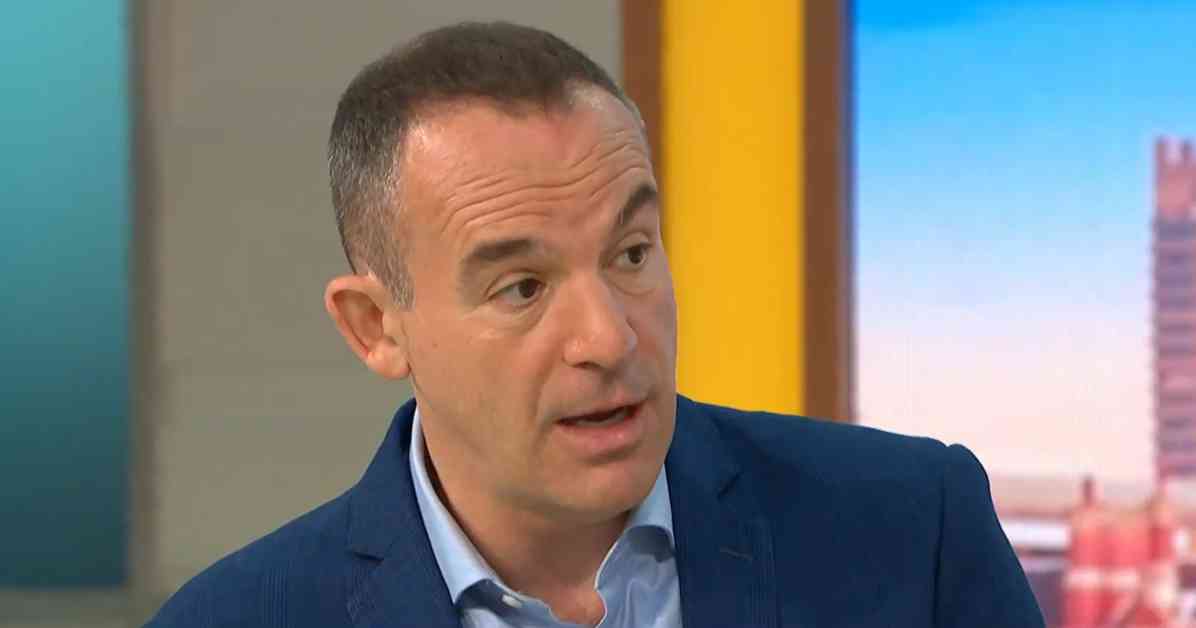Martin Lewis, the founder of Money Saving Expert, has shed light on a potential delay in the government’s plan to cut Winter Fuel Payments for pensioners this year. This development comes following a legal challenge launched by a law center in Scotland, in collaboration with two pensioners, aiming to review the decision to implement the cut in the country. The case will not only judicially review the Scottish government’s decision but also challenge the UK government’s move to reduce Winter Fuel Payments.
The challenge is centered around the Equality Act of 2010, which mandates public bodies and lawmakers to consider how their decisions impact individuals with different protected characteristics, including age and disability. Martin Lewis explained, “If this were to succeed – and there’s quite a track record in Scotland of this type of thing going through to challenge Government decisions – it could mean it forces the Government to conduct an equality impact assessment, which is not quick. That would mean they could not impose the universal cut this year, so it would delay it. This is my interpretation: it wouldn’t stop it happening, but it would postpone it for a year.”
The Winter Fuel Payment, a vital support for many pensioners during the colder months, has been a topic of contention in recent times. Prime Minister Sir Keir Starmer has decided to scrap the Winter Fuel Payment for all pensioners, opting to make the extra payments means-tested. This move has sparked debate and concern among pensioners and advocacy groups who rely on this assistance to stay warm and comfortable during the winter season.
With the legal challenge initiated in Scotland, there is a possibility that the outcome could have implications beyond the borders of the country. The Money Saving Expert (MSE) team emphasized that the decision reached in this case could potentially impact England, Wales, and Northern Ireland as well. If the court determines that the government failed to fulfill its obligations under the Equality Act 2010 or neglected procedural fairness by not consulting pensioners, it could rule the restriction of payments as unlawful. This would result in the reversal of the government’s decision to scrap the Winter Fuel Payments, restoring them to their previous levels.
Despite the potential for reinstating the payments, the process of assessments and reviews is expected to take a considerable amount of time. As a result, any decisions made would not be finalized before the Winter Fuel Payments are scheduled to be distributed in November and December of this year. While the MSE team believes that this delay could lead to the reinstatement of payments for all pensioners this winter, they caution that it is still early days as the legal case is in its initial stages.
In response to inquiries about the legal challenge, a Government spokesperson chose not to comment directly on the case. Instead, they reiterated the government’s stance on targeting support to those most in need due to the challenging economic climate inherited by the current administration. Despite the government’s rationale for the cuts, the potential legal implications could alter the course of action regarding Winter Fuel Payments for pensioners.
As the legal process unfolds, pensioners and advocacy groups continue to monitor the situation closely. The uncertainty surrounding the future of Winter Fuel Payments has left many individuals anxious about their financial stability during the colder months. While the legal challenge in Scotland holds promise for potentially delaying the cuts, the ultimate outcome remains to be seen.
Impact on Pensioners
The potential delay in cutting Winter Fuel Payments has brought a sense of relief to many pensioners who rely on this support to manage their heating costs. For individuals living on fixed incomes, any reduction in essential payments can have a significant impact on their quality of life. The uncertainty surrounding the future of Winter Fuel Payments has created a sense of unease among pensioners, who are already facing financial challenges in the wake of rising costs and economic instability.
Government Response
The government’s decision to target support to those most in need has been met with mixed reactions from the public. While some argue that means-testing Winter Fuel Payments is a logical approach to allocating resources efficiently, others believe that cutting essential support for all pensioners is unjust. The legal challenge in Scotland has shed light on the potential flaws in the government’s decision-making process, prompting a closer examination of the impact of these cuts on vulnerable individuals.
Looking Ahead
As the legal case progresses, the fate of Winter Fuel Payments hangs in the balance. While the potential delay in cutting payments offers a glimmer of hope for pensioners, the final decision rests in the hands of the courts. Advocates continue to push for equitable treatment of all individuals, emphasizing the importance of considering the impact of government decisions on vulnerable populations. The outcome of this legal challenge could have far-reaching implications for pensioners across the UK, shaping the future of support for those in need during the winter months.












